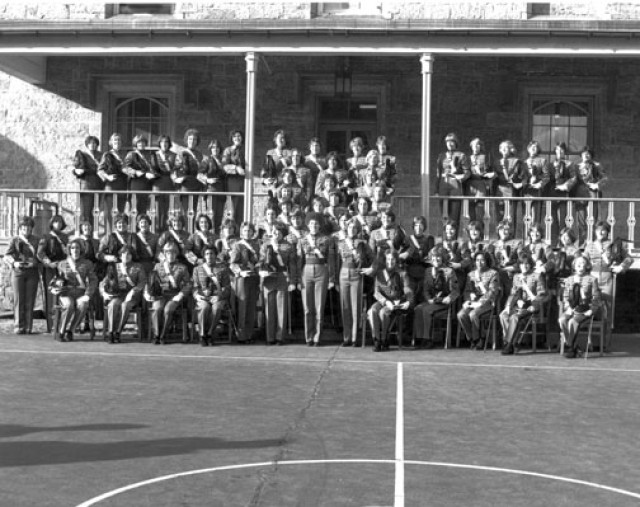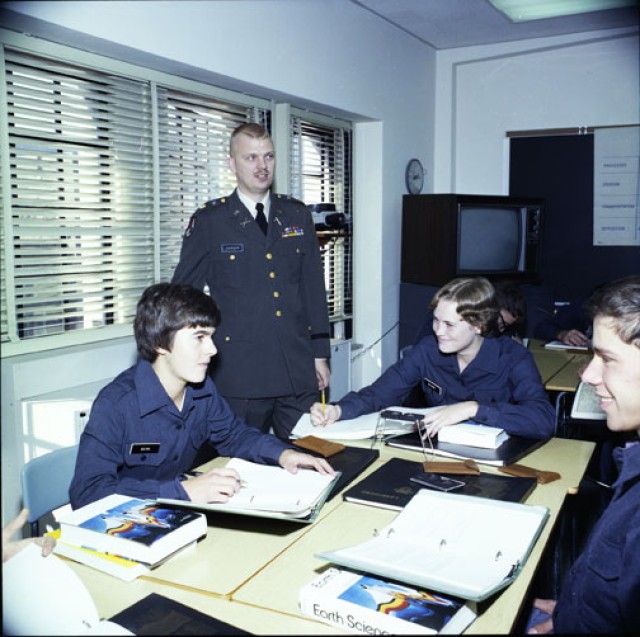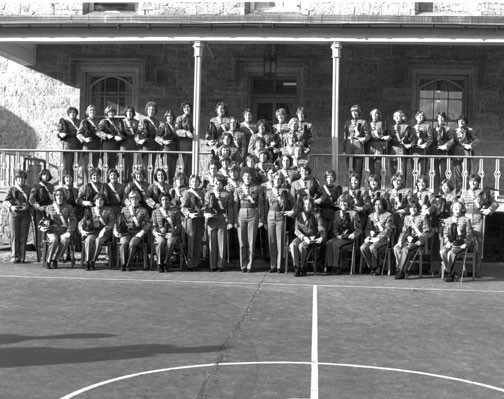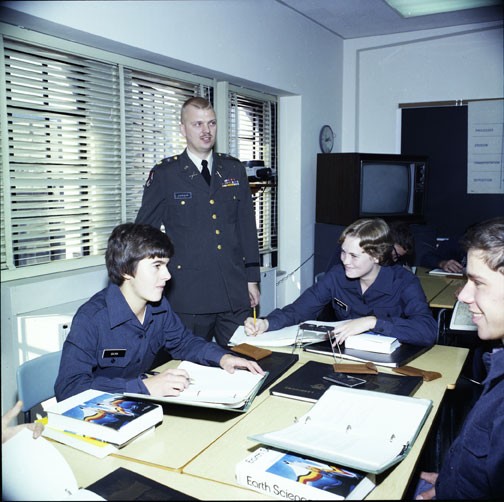On the morning of July 7, 1976, 119 women joined the Corps of Cadets, establishing the first class of females at The United States Military Academy at West Point. Of those, 62 women walked across Michie Stadium to graduate in May 1980, becoming second lieutenants in the Army, and making history in the process.
This year marks the 30th anniversary of their graduation-the culmination of the unique challenges they faced, the adversity they overcame, and the glass ceiling they shattered.
"I am very proud to be a West Point graduate and what it has done to shape me as a person and officer in the U.S. Army. Still, I don't think any of us realized (the gravity of) what we accomplished," said Brig. Gen. Anne F. Macdonald, former assistant commanding general, Police Development, NATO Training Mission-Afghanistan, of the class of 1980 women.
Today, they remain modest about their achievement, stressing that it wasn't just intense for them, but for all cadets-both men and women-transitioning into their new lives.
"Of the 119 women entering that day, I suspect all of us, along with the men, can say those days were life-changing," added retired Col. Debra M. Lewis, who served as the state inspector general for the Washington National Guard.
From day one, the women said they knew it wouldn't be easy. Macdonald called those first days "exciting, confusing and challenging."
Along with the pressure of converting from civilian to military life, the women in particular faced numerous setbacks, bizarre predicaments, and battled embarrassment and disrespect, said Lewis.
The female-specific uniforms alone caused controversy. A wardrobe malfunction on the first day caused several broken zippers. The pants had no pockets, which forced the women to carry personal items in unusual places. And unlike their male counterparts', their jackets didn't have tails; that would have attracted too much attention to their backsides.
"Although not funny then, in hindsight, we gained quite a sense of humor as we later shared stories about how we creatively approached and successfully dealt with each situation," said Lewis.
Still, the women of the 1980 class faced issues more trying than uniform dilemmas, including resentment and chauvinism.
"As with anything that is new, there is sometimes hesitation and reluctance to change," Macdonald said. "Unfortunately, there was animosity toward us. Really, the reaction from the men ran the gamut: some were curious, some ignored us, some were helpful, and some were hostile and difficult."
Shortly before their arrival, select senior leaders at the academy made public statements disagreeing with the congressional decision to allow women to attend service academies. The story garnered national attention. Although many cadets were reluctant to speak on the subject, it became obvious that the policy had its opponents within the student ranks at West Point as well.
"If I hear one more call for a meeting about the women or for the women or because of the women, I'm going to get sick," a 1980 Time magazine article, quoting a male cadet, read. The article went on to say that the cadet was not alone in his opinion, and the academy issued a formal statement supporting as much:
"Oversensitivity to the presence of women at West Point on the part of the staff and faculty has been disruptive, serving to alienate the men, foster separatism and delay the complete integration of the Corps of Cadets."
With the pressure on, the women said they strived every day to perform their best and earn the respect of their male counterparts and leaders.
"The academics, leadership and discipline standards were the same for all cadets," said Macdonald. "The expectation for the women to perform was the same as (for) the men," which sometimes proved challenging, due to physiological differences between the genders. As the first women to attend West Point, many of them didn't know what to expect, physically.
During summer training, for example, women carried the same weapon as men, the M60 machine gun, a 23-pound weapon.
"It was heavy, made even more so because my best carry position resulted in the weapon banging my thighs every step I took up the mountains while on patrol," remembered Lewis.
The long-held Army tradition of running was also a challenge for many of the women, despite being physically fit. Unlike their later years, the first summer identified only one running group for all skill levels, pushing the women to run faster than their bodies were ready to handle.
"Many women suffered injuries from the road marches with full gear and running in combat boots or our suede Converse sneakers up and down hills for miles at a time at a pace often under 8-minutes per mile," said Lewis. "Frequently turning purple by the end of the runs, I decided early on that I would pass out before I let myself drop out of a run," said Lewis.
Through these challenges and numerous others they would encounter throughout their careers, the women found camaraderie.
"We were continuously breaking new ground every year we were there, with its own inherent challenges. Each year, I was fortunate to find some time and get to know a few more women," said Lewis.
"Though we were often separated and dispersed throughout the corps, we did what we could to support and help each other," added Macdonald. "Today, we are an incredibly close group and very supportive."
It is with this mutual support that many of the women in the class of 1980 have served long careers and continue to serve in the Army.
"I feel tremendous gratitude and pride. First, toward those who played an active role in opening the doors of opportunity for women to attend all of the academies, and later served in such key capacities in their respective services. Second, toward the many courageous women and men who have (served) and continue to serve our nation in and out of uniform, including those I was lucky to serve with during my military career," said Lewis, who retired after a 30-year career.
Their ability to overcome the adversity they faced would prepare them for challenges they would face as leaders.
"It wasn't until my first assignment, while serving as an aviation section leader, (that) I realized that West Point had, indeed, instilled the discipline, physical and mental toughness necessary to be an officer in our Army," said Macdonald. "It was then, I realized I had earned my place in the long gray line of West Point leaders."
Kelly Schloesser works for U.S. Army Training And Doctrine Command public affairs.








Social Sharing